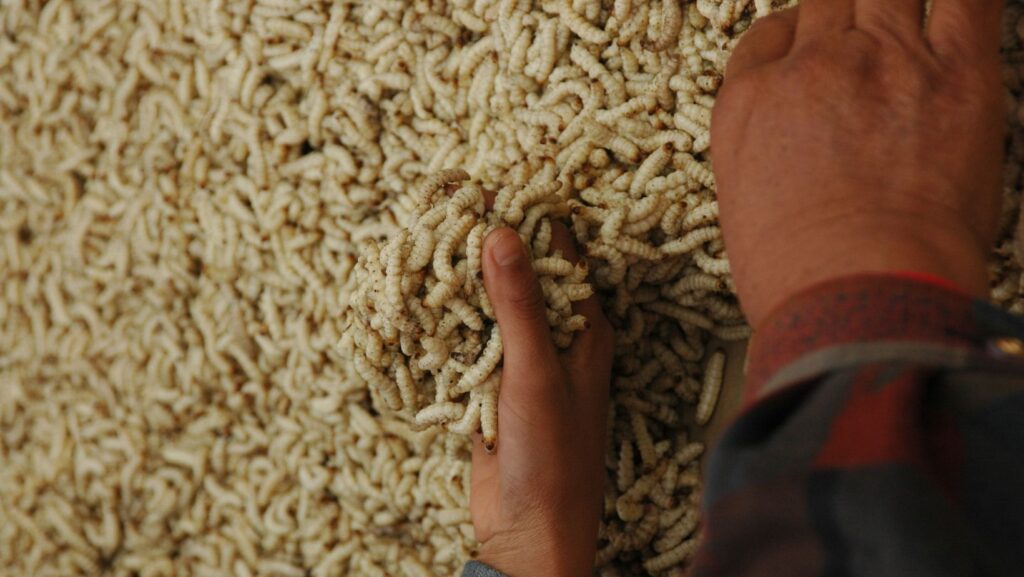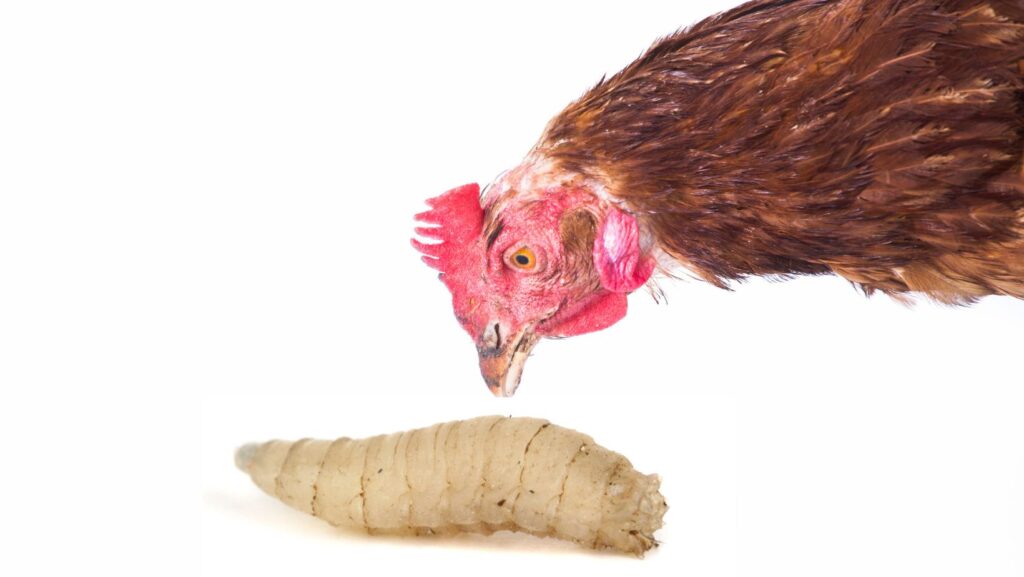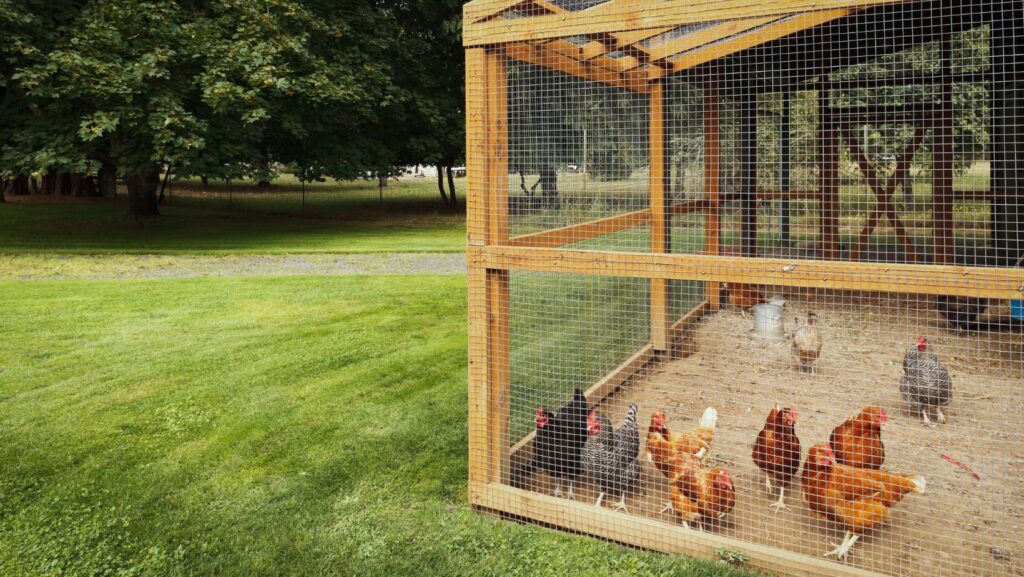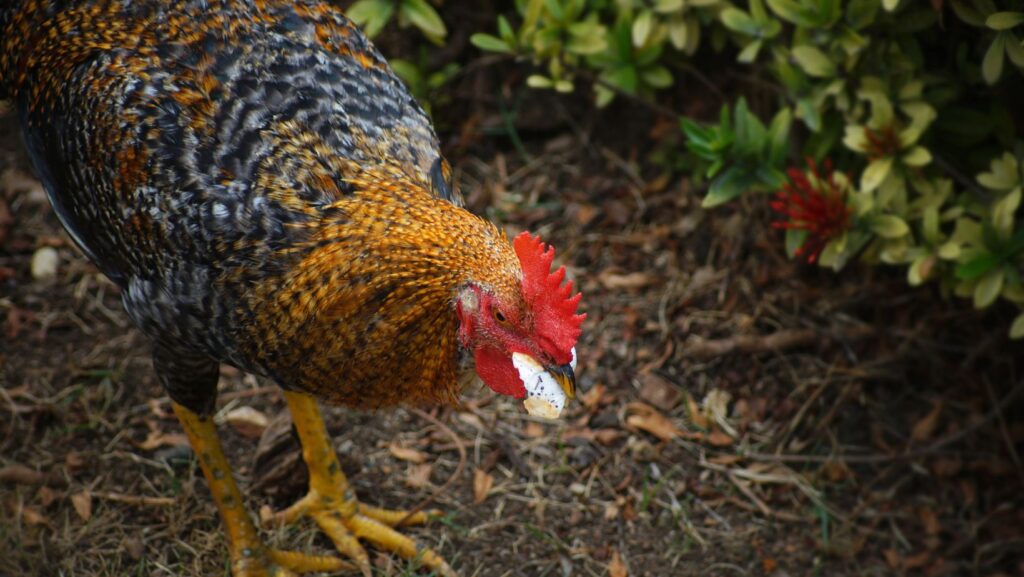Can Chickens Eat Maggots? Well Yes, chickens can eat maggots as their part of diet, and there are some benefits to doing so. Maggots are the larvae of certain types of flies and can provide a good source of protein for chickens. Additionally, eating maggots can help to supplement their diet, especially if they are free-ranging and may not have access to a lot of insects.
However, there are also some risks to feeding chickens maggots. One concern is that the maggots may be carrying harmful bacteria, parasites, or other pathogens that could make the chickens sick. It’s also possible that the maggots could have come from a decaying animal, which could pose a health risk to the chickens.
Another potential issue with feeding maggots to chickens is that it could lead to an overconsumption of protein, which could cause health problems, especially if the chickens are not getting enough carbohydrates and other nutrients in their diet.
If you choose to feed your chickens maggots, it’s important to do so in moderation and to ensure that the maggots are fresh and clean. It’s also a good idea to supplement their diet with other sources of protein, such as mealworms or high-quality chicken feed. As always, it’s important to monitor your chickens’ health and well-being and consult with a veterinarian if you have any concerns.
Contents
How To Grow/Farm Maggots For Chicken Feed

Growing or farming maggots for chicken feed is known as maggot farming or vermiculture. Here are the steps to follow:
- Find a suitable location for your maggot farm, such as a warm, shaded area with good ventilation.
- Build or purchase a container for your maggots to grow in. The container should be shallow and have a lid to keep out flies and other pests. You can use a plastic storage container or a wooden box lined with plastic.
- Add a layer of organic matter to the bottom of the container. You can use food waste, such as fruit and vegetable scraps, or animal manure.
- Introduce a small number of maggots to the container. You can purchase maggots online or collect them from a reliable source.
- Cover the container with a lid, leaving a small gap for air to circulate.
- Allow the maggots to feed on the organic matter in the container. They will multiply rapidly and produce a lot of waste, which can be used as fertilizer.
- Harvest the maggots when they are fully grown and ready to use as chicken feed. You can either remove them manually or use a sieve to separate them from the organic matter.
- Rinse the maggots in clean water to remove any debris or waste.
- Dry the maggots by spreading them out in a single layer on a clean, dry surface, as described in the previous answer.
It’s important to note that maggot farming can be a messy and time-consuming process, and it’s not suitable for everyone. If you’re interested in maggot farming for chicken feed, it’s a good idea to do some research and consult with experts in the field.

How To Dry Maggots For Chicken Feed
Drying maggots can be a great way to preserve them for use as chicken feed. Here’s how to dry maggots for chicken feed:
- Collect fresh, clean maggots from a reliable source. Avoid collecting maggots from decaying animals, as they could be contaminated with harmful bacteria or other pathogens.
- Rinse the maggots thoroughly in clean water to remove any dirt or debris.
- Spread the maggots out in a single layer on a clean, dry surface. You can use a drying rack or a baking sheet lined with paper towels.
- Place the maggots in a warm, dry location with good ventilation. You can use an oven or a dehydrator set to a low temperature (around 120-140°F) to speed up the drying process.
- Check on the maggots regularly and turn them over to ensure that they dry evenly.
- Once the maggots are completely dry and crispy, store them in an airtight container in a cool, dry place until you’re ready to use them as chicken feed.
It’s important to note that while dried maggots can be a good source of protein for chickens, they should be fed in moderation and should not be the only source of protein in a chicken’s diet. Chickens also need a balanced diet that contains carbohydrates, fats, vitamins, and minerals.
How To Deal With Maggots In Chicken Coop

Maggots in a chicken coop can be a sign of a hygiene problem, as they thrive in damp, dirty conditions. Here are some steps to deal with maggots in a chicken coop:
- Remove all soiled bedding and droppings from the coop and dispose of them in a compost pile or garbage bin.
- Scrub the coop thoroughly with hot, soapy water and disinfectant to kill any remaining maggots or eggs.
- Allow the coop to dry completely before adding fresh bedding.
- Apply diatomaceous earth (DE) to the coop and surrounding areas. DE is a natural powder made from fossilized algae that can help to prevent flies and other pests from laying eggs in the coop.
- Keep the coop clean and dry at all times by regularly removing soiled bedding and adding fresh bedding as needed.
- Provide your chickens with a dry, shaded area to dust bathe, as this can help to keep them clean and reduce the risk of pests.
- Consider using fly traps or other natural pest control methods to reduce the number of flies in the area.
It’s important to take steps to prevent maggots from appearing in the first place by maintaining a clean, dry chicken coop and practicing good hygiene. Regular cleaning and disinfecting of the coop and providing your chickens with a healthy diet and clean water can also help to prevent maggots and other pests from becoming a problem.
6 Benefits of feeding Chickens Maggots
Here are some benefits of feeding maggots to chickens:
- High in protein: Maggots are rich in protein, which is essential for chickens’ growth, development, and egg production. Feeding maggots to chickens can help meet their protein requirements and promote healthy growth.
- Cost-effective: Maggots can be grown at home using organic waste such as food scraps or manure, making them a cost-effective source of protein for chickens. This can help reduce feed costs and improve the profitability of chicken farming.
- Improves gut health: Maggots contain beneficial bacteria that can improve the health of chickens’ digestive systems. Feeding maggots to chickens can help maintain a healthy gut microbiome and prevent digestive problems such as diarrhea.
- Reduces waste: Feeding maggots to chickens can help reduce organic waste by converting it into a valuable protein source. This can help reduce the environmental impact of chicken farming and promote sustainability.
- Promotes natural foraging behavior: Chickens are natural foragers and enjoy searching for insects and other small prey. Feeding maggots to chickens can stimulate their natural foraging behavior and provide them with mental stimulation.
- Boosts immune system: Maggots contain nutrients such as chitin, which can boost chickens’ immune systems and protect them from diseases. Feeding maggots to chickens can help promote overall health and reduce the need for antibiotics.
Overall, feeding maggots to chickens can be a healthy and cost-effective way to meet their nutritional needs and promote natural behavior. However, it’s important to ensure that the maggots come from a clean source and are not contaminated with harmful bacteria.
5 Disadvantages of feeding Chickens Maggots

Here are some potential risks and disadvantages of feeding maggots to chickens:
- Contamination: Maggots can carry harmful bacteria and parasites that can make chickens sick if ingested. It’s important to ensure that the maggots are grown in a clean and controlled environment and are free from any contaminants.
- Overfeeding: Feeding too many maggots to chickens can lead to imbalanced diets and digestive problems such as diarrhea. It’s important to incorporate maggots into a balanced diet and not rely on them as the sole source of nutrition.
- Allergic reactions: Chickens can develop allergies to certain types of food, including maggots. It’s important to monitor chickens for any signs of allergic reactions such as respiratory problems, rashes, or swelling.
- Handling: Maggots can be messy and difficult to handle, which can pose a risk of contamination or injury. It’s important to wear gloves and use clean tools when handling maggots to prevent any cross-contamination.
- Ethical concerns: Some people may have ethical concerns about feeding live insects to chickens. It’s important to consider the welfare of the insects and ensure that they are grown and harvested in a humane way.
Overall, feeding maggots to chickens can be a valuable source of nutrition and stimulation, but it’s important to be aware of the potential risks and to handle them in a safe and responsible manner.
Summary
Feeding maggots to chickens can be a cost-effective and nutritious way to supplement their diet, but it is important to be aware of the potential risks and disadvantages. Maggots are high in protein and can improve gut health, reduce waste, and promote natural foraging behavior in chickens.
However, there is a risk of contamination, overfeeding, allergic reactions, and ethical concerns related to feeding live insects to chickens. It’s important to grow and handle maggots in a safe and controlled manner and to incorporate them into a balanced diet to avoid digestive problems. Overall, maggots can be a valuable source of nutrition and stimulation for chickens when used responsibly.
![Can Chickens Eat Maggots? [5 Benefits and 4 Risks]](https://oxfordpets.com/wp-content/uploads/2023/05/Can-Chicken-Eat-Maggots.jpg)